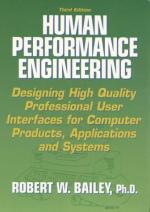|
This section contains 1,122 words (approx. 4 pages at 300 words per page) |

|
All computer systems must possess certain elements before they can be considered useful to human users. Computers require a processing unit, some memory, perhaps secondary storage, and interconnecting bus networks— but computers also need input/output (I/O) devices. Computers are programmed to execute algorithms on data and then make the results of these computations available. If a user cannot supply data to the computer through input devices and then see how the algorithms operate on it through output devices, then the computer is ineffective.
What makes dealing with input and output devices sometimes problematic is that they differ so much in shape and form, and they tend to operate at speeds that are extremely slow compared to the central processing unit (CPU). Users prefer that the processor not be continually held up as it waits for tardy I/O devices to catch up...
|
This section contains 1,122 words (approx. 4 pages at 300 words per page) |

|



